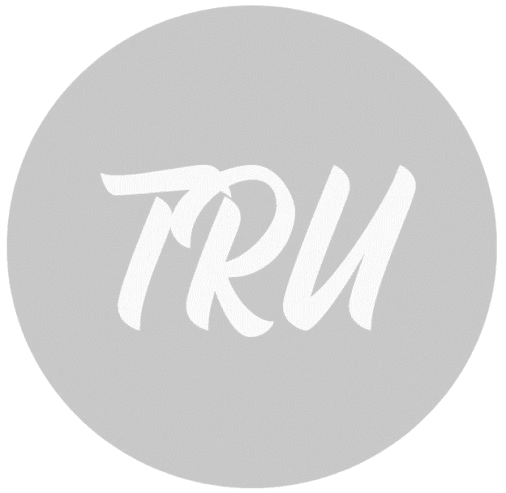Defining QA Frameworks
A Quality Assurance (QA) framework is a structured system designed to ensure that services meet predetermined standards of quality. In the realm of call center operations, establishing a robust QA framework is crucial for delivering superior customer experiences. Such a framework comprises several key components, including defined metrics, evaluation criteria, and feedback mechanisms. Each element plays a significant role in monitoring quality and facilitating continuous improvement.
The core principles of QA frameworks revolve around consistency, accountability, and enhancement of service quality. By quantifying performance through established metrics, organizations can effectively pinpoint areas that require improvement. This aspect is particularly important in call center operations where customer interactions are primarily measured through metrics such as call resolution rates, average handling times, and customer satisfaction scores. A well-crafted QA framework enables businesses to systematically assess these metrics, ensuring that standards are not just met, but also consistently exceeded.
The construction of a QA framework often involves the application of various methodologies which can include both qualitative and quantitative approaches. Qualitative methods may involve direct observation and customer feedback, whereas quantitative methods utilize statistical analysis of performance data to identify trends and areas of concern. The integration of these methodologies helps in crafting a nuanced and comprehensive approach to quality assurance.
Additionally, standards and guidelines are fundamental in shaping an effective QA framework. Established protocols not only provide a baseline for quality but also serve as a guide for training staff and refining operational procedures. By aligning the QA framework with organizational objectives, businesses within the call center industry can enhance their performance and drive improvements, ultimately leading to better service delivery and customer satisfaction.
The Role of QA Frameworks in Call Center Operations
In the ever-evolving landscape of call center operations, the implementation of a robust Quality Assurance (QA) framework plays a crucial role in enhancing service delivery and ensuring operational excellence. A QA framework tailored for call centers is essential for monitoring, evaluating, and improving key performance indicators (KPIs) that are critical to success. These metrics encompass various dimensions such as customer satisfaction, call handling time, and compliance with established protocols, each serving as a barometer of performance.
One of the primary functions of a QA framework in call center settings is to establish standardized evaluation criteria. This enables supervisors to assess agent performance consistently and fairly. By utilizing structured scorecards that align with business goals, call centers can systematically measure agent contributions against strategic metrics. This structured approach not only fosters transparency but also drives accountability among agents, enhancing the overall operational effectiveness of the call center.
Moreover, the unique challenges faced by call centers, such as fluctuations in call volume, varying customer needs, and the complexity of support issues, necessitate a QA framework that is agile and adaptive. This framework becomes a pivotal tool in managing these challenges by providing actionable insights. For instance, by analyzing customer interactions, the QA framework identifies recurring issues and training needs, facilitating targeted improvement initiatives that enhance the quality of service delivered.
Additionally, maintaining compliance with industry standards and regulations is essential for call centers, where mistakes can have significant repercussions. A well-defined QA framework incorporates compliance metrics, ensuring that agents adhere to necessary guidelines. Ultimately, a QA framework serves as a foundational element that not only supports operational monitoring but also drives continuous improvement, thereby elevating the overall quality of call center operations.
Implementing a QA Framework in Call Centers
Implementing a quality assurance (QA) framework in call center operations is an essential step towards enhancing service delivery and achieving operational excellence. The initial step involves assessing the current operations to identify strengths and weaknesses. This assessment can be conducted through various methods such as reviewing past call recordings, analyzing customer feedback, and evaluating existing performance metrics. This comprehensive evaluation will serve as a baseline for improvements.
Once the current state is understood, the next phase is to set clear, measurable objectives for the QA framework. These objectives should align with overall business goals and address specific areas requiring improvement. For instance, goals may include increasing customer satisfaction scores, reducing call handle times, or improving first call resolution rates. By establishing these objectives, call centers can ensure that the QA framework is focused and results-oriented.
Designing the QA processes is the next critical phase. This involves creating standardized evaluation criteria that are applied consistently across all customer interactions. These criteria should encompass a variety of aspects, such as communication skills, problem-solving abilities, and adherence to protocols. Regular training sessions will be necessary to familiarize staff with these criteria, ensuring they comprehend the standards they are expected to meet.
Engagement with stakeholders, including team leaders, agents, and upper management, plays a vital role in the successful adoption of the QA framework. Regular communication regarding the objectives, timelines, and significance of the QA processes will foster a culture of support and accountability. Moreover, it is essential to remain adaptable; the framework should be revisited periodically to accommodate shifting customer needs and operational challenges. By doing so, call centers can create a sustainable and effective QA framework that fosters continuous improvement.
Measuring Success and Continuous Improvement
Measuring the effectiveness of a Quality Assurance (QA) framework in call center operations is pivotal for ensuring that organizations meet and exceed customer expectations. Within this context, various metrics play a crucial role in evaluating success. Commonly used metrics include customer feedback scores, agent performance evaluations, and overall service quality ratings. Customer feedback, often collected via surveys or direct interactions, offers invaluable insights into the customer experience and highlights areas for improvement. By actively monitoring these comments and scores, call centers can adapt their strategies to better align with customer needs.
Similarly, agent performance metrics are essential in assessing how individual representatives are functioning within the QA framework. These may encompass call resolution rates, average handling times, and adherence to scripts. By comparing these performance indicators against established benchmarks, call centers can identify high-performing agents and those who may require additional training. Such nuanced analysis aids in fostering a culture of excellence within the team, ultimately contributing to improved customer satisfaction and retention.
Continuous improvement is a key tenet of a successful QA framework. This concept is based on the utilization of data analytics to drive organizational changes that enhance call center operations. By regularly reviewing metrics, call center managers can identify trends and emerging challenges. This proactive approach not only ensures that the QA framework evolves with industry standards but also helps in setting realistic goals for performance enhancement. Engagement in regular training sessions and workshops based on analytical findings contributes to skill development in agents, thus further refining service delivery.
In conclusion, the integration of effective measurement and continuous improvement practices within a QA framework is vital for optimizing call center operations. By focusing on relevant metrics and a commitment to evolving based on insights, call centers can maintain service excellence and adapt to an ever-changing business landscape.




